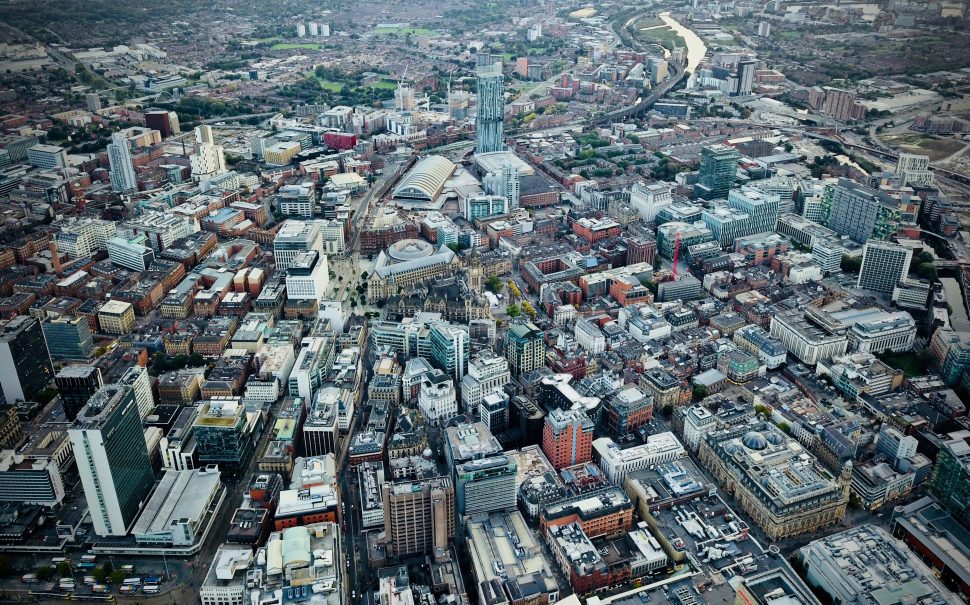Rents across the North West have hit record highs according to the Office for National Statistics, prompting concerns of rising homelessness across the region.
Charities have warned that they are inundated with people seeking homelessness support as the cost of renting privately in the region climbed by 5.2% over the past year – the highest annual increase in the North West since records began in 2006.
The findings come just months after a report by global property advisor JLL revealed that rents in Manchester had risen by 19.6% in the 12 months to June 2023, the sharpest increase of anywhere outside London.

Dave Smith, Chief Executive of Stepping Stone Projects, said: “The number of people seeking support for homelessness across the region has gone through the roof over the past four years.
“The face of homelessness in Manchester has changed dramatically as a more diverse range of people are getting shut out of the private rented sector.”
In response, charities across the city have this month declared a “private rent emergency” and launched the Greater Manchester Private Rent Emergency campaign to tackle growing rates and diminished rights for renters.
Figures released by the campaign show that 44% of households at risk of homelessness in Greater Manchester are in the private rented sector.

Campaigners are calling on local councils, politicians, and other stakeholders to reform the private rented sector by introducing the Renters’ Reform Bill and local rent controls, among other measures.
Stepping Stone Projects, Mustard Tree, The Booth Centre, and Greater Manchester Shelter, all of which tackle the interlinked issues of poverty and homelessness across the region, are also demanding an increase to Local Housing Allowance rates.
These dictate the amount of Housing Benefit available to tenants renting private-sector accommodation, based on the location and size of their household.
Under the current rates, which have remained frozen since 2020, just 4% of new tenancies across the region are affordable to those on housing benefits according to the Greater Manchester Combined Authority.
Smith explained: “We now find ourselves stuck in a double bind: growing numbers are coming to us as a result of issues in the private rented sector, but we are unable to support them back into rented accommodation because the private market is becoming more and more inaccessible.”
Paul Newcombe, CEO of The Booth Centre, added: “From our work supporting people at risk of homelessness, we know that sky-high private rents are forcing people out of their homes as landlords seek to maximise their returns. An increasing number of people are finding that they are effectively priced out of some areas of the city, and a lack of affordable housing means they are left with nowhere to turn.
“Soaring rents and inadequate rights have created a private rent emergency, which must be recognised and tackled if we are serious about reducing homelessness in Greater Manchester.”
The latest rise in local rents reflects a wider trend of national rental increases, with English regions outside London experiencing an average 5.3% rise over the past year. Like the North West, this annual increase in rents across England is the highest on record.
Regional rents have soared since 2020, when lockdown prompted many to pursue a life beyond the capital city. In the North West, rents increased by 12.3% over the three years from September 2021 to 2023, compared to 3.7% from 2018 to 2020.
The North West has seen the third-largest hike in rental prices in England.

Despite the growing calls for rental reforms, Michael Gove has this week pledged to delay implementing a ban on no-fault evictions.
The long-promised ban on section 21 eviction notices, which was promised in the 2019 Conservative manifesto, would end the right of landlords to evict tenants for no reason with two months’ notice.
Angela Rayner slammed the announcement, saying that it “comes at a heavy price for renters who have been let down for too long already”.
Labour has calculated that delaying the ban on no-fault evictions until January 2025, the last possible time for a general election, could see more than 30,000 eviction notices served to households across the country.
Feature image: Mylo Kaye, 2021



